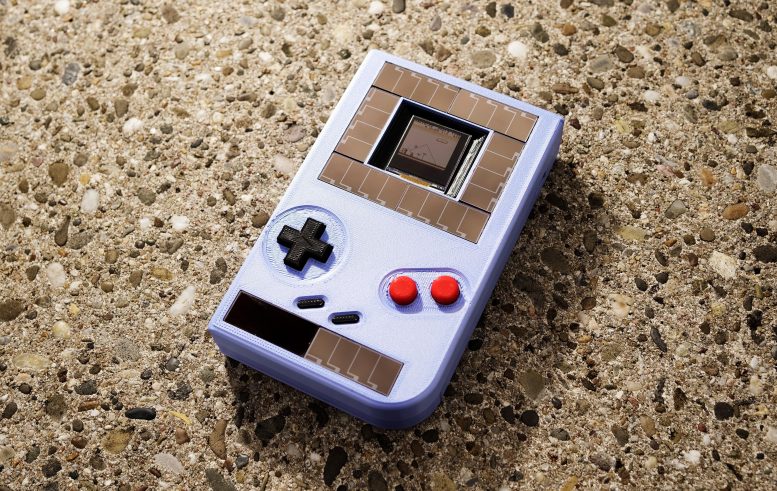Welcome to the technology of every parent’s nightmare, a game boy that never dies. Thanks to the engineering minds at Northwestern University and the Delft University of Technology in the Netherlands, a hand-held video gaming console powered by solar power may be the future of gaming.
The new Game Boy is not just a toy in its own right; it is also a powerful proof-of-concept that pushed familiar boundaries, boasting battery-free intermittent computing into the space of interaction and fun.
With sights set on the future and sustainability in mind, using solar panels will eradicate the need to use batteries which are not only costly but also environmentally hazardous and in most cases, end up in landfills. The new device is designed to harvest energy from the sun and the user.
Creating advances like this technology, and specifically, gaming, enables game playing to last for long periods of time without having to stop and re-charge the battery. Technology of this kind has the potential to work well as a smart device feature, removing the need to continuously charge our phones and smartwatches.

As the user presses a button on the device, the device converts it into energy to power the device. Working this way will help make sustainable gaming a reality, proving to be a major step in the right direction. The platform creators wanted to make a statement with their new technology to show that sustainable gaming is possible and can be fun.
The device is the same size and form of the original Game Boy and is equipped with a set of solar panels housed around the screen. Keeping in with the theme of its nostalgic routes, one of the key factors is that the device is that it impersonates the Game Boy processor.
What this means is that although from a processing point of view it requires a lot of computational power and energy, it still allows popular retro games to be played straight from their original cartridges.
As with all first products, as the device switches between power sources, it does experience short losses in power. Therefore, to ensure an acceptable period of gameplay, as the power switches, researchers designed the device from the ground up. This helped them concentrate on energy efficiency.
They also developed a new way of storing the system state in non-volatile memory, which helps to restore gaming when power returns, eliminating the need to press save, compared to traditional platforms. Gameplay interruptions only last less than one second for every 10 seconds of gameplay which the researchers find to be plausible.
Although this technology’s great and offers a new way of thinking and gaming, there is, of course, still a long way to go before state-of-the-art hand-held game consoles become fully battery-free.
Researchers of the technology and device hope that their device can raise awareness of the environmental impact of small devices that make up the Internet of Things.
Although there is much promise for this tech to be adopted into many other devices, some hurdles remain, making it a fight to get flexible solar cells to compete with more traditional energy sources.
Over the past decade, the use of typical rigid solar devices have steadily improved and today, convert about 20 to 22% of the sun’s energy into energy that can be used. Unfortunately, however, scientists do believe they are reaching their limit of silicon-based technology which is where the issue to take this technology further lies.
There is some research which looks into the potential to use 1D and 2D materials which can help to improve efficiency and stability of the cells, improving electron transport inside the panel. Phosphorene is a 2D material that is essentially a single layer of black molecules. However, using phosphorene is still in the experimental stage, which is costly, but it could work out to be highly successful.
The future of gaming and solar panel energy does look promising, but more importantly, sustainability is the key driving force towards future devices. The use of natural energy such as the sun or movement energy from us interacting with our devices could see a future without the need for batteries or re-charging devices.
Info about Writer – Yasmita Kumar – I am a writer and have been writing about various topics over many years now. I enjoy writing about my hobbies which include technology and its impact on our everyday life. Professionally I write about Technology, Finance and Health and previously worked for the NHS.
If you enjoy games and gaming and want more NEWS from the Gaming World Click Here
Want more news from the Tech world for Gaming Peripherals to Hardware Click Here








You must be logged in to post a comment.